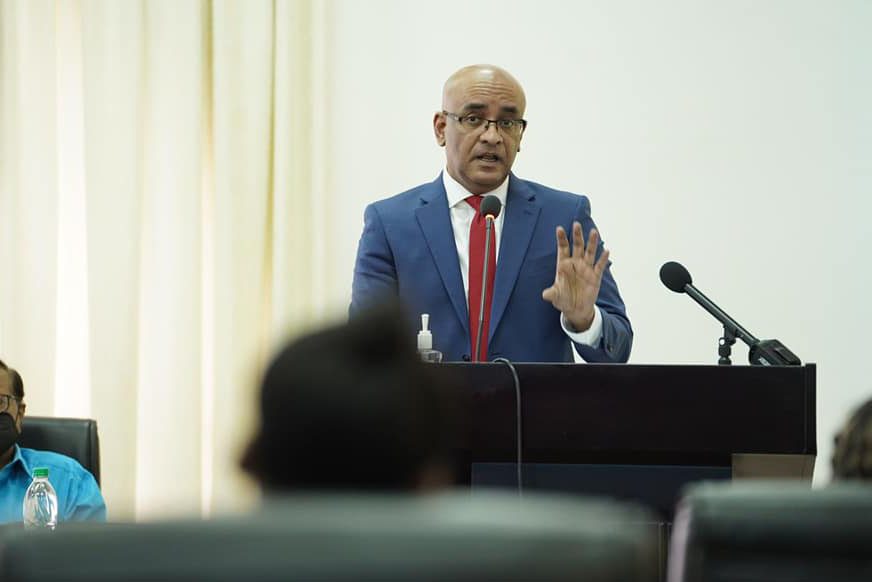Guyana’s Vice President, Dr. Bharrat Jagdeo believes it would be unwise for the South American country to scale back oil and gas exploration and production while nations such as Norway, Saudi Arabia and the USA continue to feed the global demand.
During a consultation held this week on the nation’s revised National Determined Contributions (NDCs), Jagdeo said, “We are arguing, if there is a need to supply fossil fuel globally, then why should Guyana be shut out? A lot of the Inter-Governmental Panel on Climate Change and the NGOs are saying don’t explore and develop new resources. So, what are they effectively telling us, is that you have a $4 trillion dollar economy, and they want to keep it as a monopoly for Venezuela, the US, Saudi Arabia, and Norway. They will continue to supply because you cannot develop anything else.”
The former Head of State added, “We have to be responsible. Our per capita GDP is $6000 and those countries range above $50,000 except for Venezuela, but where is the fairness in that?”
The Vice President said by sitting on its hands, Guyana would be encouraging a monopoly. He said, “We would be shooting ourselves in the foot. It is such a stupid thing to do…to keep Saudi Arabia and the US just pumping all the oil that’s needed around the world and Guyana which needs some of the money to help us decarbonize, to help us build energy systems…we must sit on our hands.”
Dr. Jagdeo was keen to note that the government supports a decarbonized world while adding that a carbon price wherever fossil fuel is being used is essential to propelling the transition that is needed to achieve the objectives of the Paris Agreement.
It was on Monday that the Office of the President convened a stakeholder engagement session to discuss the revision of Guyana’s Nationally Determined Contribution to the United Nations Framework Convention on Climate Change (UNFCCC).
Under the UNFCCC and the Paris Agreement, countries are required to prepare and submit NDCs outlining their commitments to take action to address climate change.
NDCs are required to be updated every five years. Since Guyana’s first submission was made in 2016, a revision is now due.
Monday’s forum was attended by a wide range of stakeholders from civil society, Amerindian organisations, conservation organisations, the private sector, and government ministries and agencies who provided perspectives on climate change, Guyana’s efforts, and the NDC.
Monday’s engagement is just one step in the process being undertaken by the Office of the President to revise the Intended Nationally Determined Contribution, taking into consideration current realities and the government’s commitments to climate change and low carbon development. The focus, Office of the President has said, will remain on key actions on adaptation to climate change and mitigation efforts, with particular emphasis on Guyana’s energy sector and forests.
A draft revised NDC will be put forward in the public domain for stakeholder review and inputs ahead of the UNFCCC, Climate Change Conference (COP26) scheduled from October 31 to November 12, 2021, in Glasgow, Scotland.



